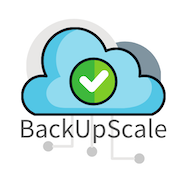Balancing Cost, Security, and Reliability
Tuesday, August 6, 2024 by Colan Schwartz

In the world of cloud computing, finding the right balance between cost, security, and reliability is crucial. At BackUpScale, we’re committed to providing a secure and reliable backup service without breaking the bank. Here’s how we’re achieving this balance and why we’ve made the choices we have.
The Cost of Major Cloud Providers
The major cloud hosting providers like Amazon Web Services (AWS), Microsoft’s Azure, and Google Cloud Platform (GCP) offer extensive cloud-computing services, but their object storage costs are unnecessarily high. Since the heart of our service is the backup repository, where your data lives, the cost of storage directly impacts the price of our service.
The Advantage of Dedicated Storage Providers
Dedicated storage providers offer a more cost-effective solution compared to the major players. However, leveraging these savings means data must be transferred out of the infrastructure-as-a-service (IaaS) vendor’s network after processing, leading to costly egress fees. These fees can offset the cost savings that would otherwise be gained by using a third-party storage vendor.
Evaluating Cloud Providers and Egress Fees
To provide cost-effective and reliable backup solutions, evaluating cloud providers that align with our needs is essential. We are currently exploring Scaleway, Civo, and UpCloud, each offering support for Terraform, managed Kubernetes, and no egress fees, making them strong contenders for our infrastructure. Cloudflare’s Bandwidth Alliance offers a beneficial strategy by eliminating egress fees, and Scaleway is a participating member. While Civo and UpCloud are not part of the Alliance, they also do not charge egress fees, which enhances their appeal. We are actively experimenting with these three providers.
Consideration of OVH
Initially, we considered OVH, another provider that does not charge egress fees (and is not part of the Alliance). However, we encountered reliability issues such as prolonged network downtimes and insufficient service level guarantees for managed Kubernetes.
Decision-Making Criteria
Our goal is to determine which of the three providers best meets our needs regarding reliability, performance, and cost-effectiveness. Our focus remains on ensuring that our infrastructure supports seamless and dependable backup services for our customers. We are committed to selecting the provider that aligns most closely with these goals.
Selecting Wasabi for Object Storage
For object storage, we evaluated several providers and found Wasabi and Backblaze to be great options, both members of the Bandwidth Alliance. While Backblaze offers slightly lower prices, it lacks the geographic redundancy we’re looking for. Wasabi has recently introduced the option to replicate data across multiple geographic regions, allowing us to offer this important feature to our customers. As a result, we’ve chosen Wasabi to support these plans.
[Update (2024-12-13): On further research, we discovered that Backblaze does indeed support replication across regions, and they don’t have a minimum billing period of 3 months for files like Wasabi does. So in the end, we ultimately decided to go with Backblaze, not Wasabi.]
Ensuring System Reliability
Reliability is non-negotiable at BackUpScale. To build a highly available system, multiple Kubernetes pods must be ready to respond to backup requests. Although we have not finalized our choice of provider, we know it will not be one of the big three (AWS, Azure, or GCP). In our research, they are the only ones that natively support writing to the pods’ shared file system. As such, we are implementing our own fault-tolerant shared file system using Longhorn. Longhorn is an open-source, cloud-native distributed block storage system designed for Kubernetes, providing high availability for persistent storage. Notably, it supports the feature we need: ReadWriteMany (RWM). Longhorn meets our needs and is less complex than alternatives like OpenEBS and Rook, which are designed for more extensive non-block storage setups that exceed our requirements. This approach allows us to provide redundancy and avoid single points of failure, underscoring our commitment to delivering a reliable service. We can always transition to a similar managed offering if and when our chosen provider makes it available.
Conclusion
At BackUpScale, our focus on cost, security, and reliability drives every decision we make. By carefully selecting partners, and then investing in solutions that ensure redundancy and reliability, we’re building a service that meets the needs of our customers without sacrificing affordability. We remain committed to offering a dependable and secure backup solution, and we thank you for joining us on this journey.
If you’re interested in learning more or joining the conversation, we invite you to visit our Community page and connect with us. We would love to hear your feedback on the discussion above and welcome any thoughts or suggestions you might have.
